May 22nd, 2016
My Second Day in Greece
Ahmad Yousaf, MD
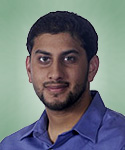
Ahmad Yousaf, MD, is the 2015-16 Ambulatory Chief Resident in Internal Medicine at Rutgers New Jersey Medical School.
1) The following are real conversations the team has had with patients/refugees in our short time here:
Young lady who came in with urinary symptoms:
“How old are you?”
“I am 27 years old… I hope this is the last year of my life.”
Teenage male:
“I have to get out of here. I’ve spent 3 months of my life living in a tent in a gas station… I couldn’t even imagine living in a normal house anymore. I need to find a way out.”
Middle-aged woman who presented with complaints of headache and belly pain for a year:
When I asked her if she could tell me if there was a specific event that happened a year prior when the symptoms started, she forced a smile as tears ran down her face.
“A lot happened. I have not been home for 5 years now.”
After listening to her and doing a full exam, I told her that her symptoms were likely related to her stress and she nodded… More tears fell: “I haven’t slept in a very long time.”
2) We visited the Idomini refugee camp today. More than 10000 people live in a field, in tents with no running water except a few faucets located between a line of porta-potties. The ground is full of sharp rocks and gravel, and the refugees often have very little to lay down to cushion themselves when they sleep. Children, like the ones below, wander the camp doing what all children do. They play. They laugh. They fight with each other. They joke. They misbehave. They run. They have no idea that the reality they live is not the reality of the rest of the world. The entire world for a Syrian refugee child involves his/her experience of life isolated to having nothing and doing everything just to survive.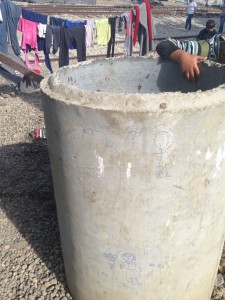
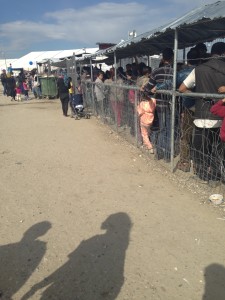
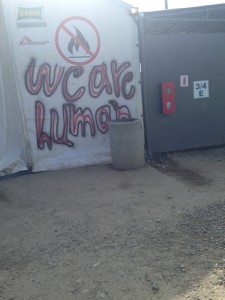
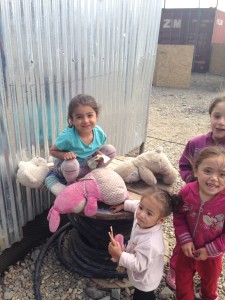
3) A teenager came to us with an injured foot related to a shrapnel injury he suffered 5 months prior while in Syria. It was clear he needed a surgical intervention — his foot was swollen and was extremely painful to walk on. I asked around — What do we do with people in this situation? Where do we send them? Who do we ask? Now what? The answer was painful: There is nothing we can do. There is no where he can go. We cannot help him… And nobody will be able to help him, because there are thousands like him… Thousands of people who have chronic medical issues with no avenue for acquiring treatment. They are, essentially, unworthy, in the collective eyes of the world, to be treated like human beings.
4) “Sharafna,” a boy called out to us as we left the camp. Roughly translated it means, “you have honored us by being here.” I wanted to reply in shame, “That’s impossible. The world is not deserving of any kind words from the Syrian refugees.”


Really powerful post. Thank you for what you do, and thanks to all your colleagues.